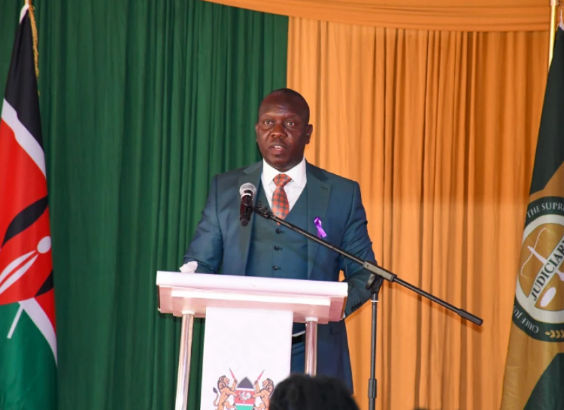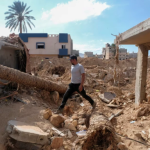Families of protest victims continue to bury their loved ones, demanding the prosecution of police officers responsible for killing unarmed demonstrators. This was the predominant call at the burial of 21-year-old Alex Muteti, one of the 60 Kenyans killed during the anti-government protests across the country.
The Muteti family, like many others, seeks justice as a means to heal their pain. However, recent statements by Director of Public Prosecutions (DPP) Renson Ingonga regarding the killings and the lack of witness statements have sparked concerns. Leaders attending the burial called for Ingonga’s resignation, accusing him of failing to fulfill his duties.
“I want to tell the DPP of this country to resign if he is worthy any salt, If that office is compromised, is intimidated and I believe you are compromised and intimidated then you should resign and if parliament is worthy any salt, Parliament should reconvene and send you home, you cannot deliver justice for Kenyans,” said Makueni Senator Daniel Maanzo.
It is a cry for justice that resonates with hundreds of families, some who lost their loved ones and those who are still recovering from the injuries inflicted by overzealous police officers.
What is more baffling however is the fact that some of these police excesses were captured on camera and some of the family members have already recorded statements.
“Ati wanasema witnesses wote wame withdraw I want to make it clear wetu ako na ameandika statement kwa department zote hata kama watasema amepotea yuko hata niliskia Mama Rex akisema wake amewithdraw ni ile intimidation wako nayo lakini wajue Mungu hata withdraw his Hao wenyewe hawataki kushika polisi wenzao,” Rachel Wanjiru, an aunt to one of the victims. Evans Kiratu, said.
Edith Wanjiku, the mother of another victim, expressed her frustration: “Hao wenyewe hawataki kushika polisi wenzao, hawatako kuwachukulia hatua na ukweli saa hizi siezi sema nina ushahidi hiyo bullet niko nayo kwa hivyo tunaambulia patupu.”
On June 20th, a video captured a police officer shooting at a crowd in Nairobi CBD after a day of protests. It is alleged that this could be the bullet that took the life of Rex Masai.
However, more than a month later, there has been no report on whether the officer who fired the shot has been questioned, with the DPP only indicating that the primary witness in the case has yet to record a statement. Another instance of police impunity involved a police officer firing a teargas canister at journalists covering the arrest of protesters. One journalist sustained injuries.
Frank Okoth sustained six gunshot wounds during the June 25th protests, yet the police officer who shot him remains free while Okoth is bedridden at home in Landi Mawe. Six deaths were recorded outside parliament on the same day, and many protesters sustained gunshot wounds, but no action has been taken against the officers involved.
Close to two weeks after Kameme TV Nakuru correspondent Catherine Wanjeri was shot during the anti-government protests on June 16th, no police officer has recorded a statement or been arrested, despite allegations that the officer who shot her four times was in a police van patrolling Nakuru streets. Wanjeri is still nursing her gunshot wounds at home.
Legal experts argue that the DPP has legal alternatives to ensure families of those killed and injured receive justice and that the lack of witness statements should not hinder the administration of justice.
“First and foremost, you are asking the same killers to make a report for you and to prepare the charges will they do it, the answer is no. The law says you can have an inquest for every single death we want the inquest for Alex Muteti, if you know you have no evidence let us have a public inquest, let the magistrate sit, let the public come and they will give you a report as to who killed Alex so do not say you cannot charge anybody,” Senator Maanzo said.
Despite a directive by President William Ruto to have all those arrested released, and rogue police officers arrested nothing seems to happen, with families left to bear the burden of treating those injured and burying those dead on their own.



